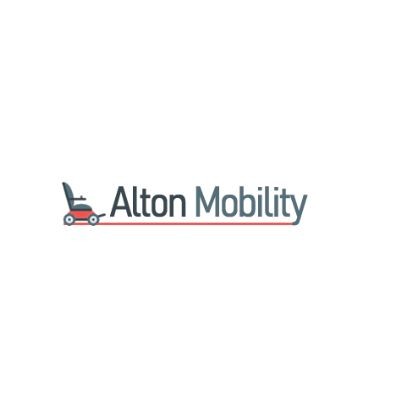In the dynamic landscape of New Zealand's startup ecosystem, entrepreneurs often find themselves in an intricate dance with regulations. An understanding of these regulatory frameworks is crucial for sustainability consultants looking to advise startups on maintaining compliance while fostering innovation. As New Zealand continues to position itself as a hub for clean technology and sustainable business practices, navigating these regulations becomes pivotal. According to the Ministry of Business, Innovation and Employment (MBIE), the startup sector in New Zealand contributed approximately NZD 1.7 billion to the economy in 2022, underscoring its significance. But what does it take to navigate this regulatory maze effectively?
Understanding the Regulatory Landscape
The regulatory environment in New Zealand is designed to ensure fair competition and consumer protection while promoting sustainable business practices. Key regulatory bodies include the Financial Markets Authority (FMA), the Commerce Commission, and the Environmental Protection Authority (EPA). Each of these bodies enforces specific regulations that startups must adhere to, particularly those in the sustainability sector.
One of the primary challenges faced by startups is understanding the compliance requirements for environmental regulations. New Zealand's Resource Management Act (RMA) is one such regulation that governs the use of natural resources. For sustainability-focused startups, aligning business practices with RMA guidelines is not only a legal requirement but also a competitive advantage.
Case Study: EcoTech Innovations – Navigating Environmental Regulations
Problem: EcoTech Innovations, a Wellington-based startup, faced significant challenges in aligning its operations with the RMA. The company’s initial projects were delayed due to non-compliance with environmental standards, resulting in financial setbacks.
Action: The company engaged with sustainability consultants to audit its processes and ensure compliance. By implementing a comprehensive environmental management system, EcoTech Innovations was able to streamline its operations and align with regulatory requirements.
Result: Within six months, EcoTech Innovations saw a 35% reduction in project delays and a 20% increase in investor confidence, as they were perceived as a responsible and compliant entity.
Takeaway: For startups in New Zealand, understanding and aligning with environmental regulations is crucial for operational efficiency and market credibility. Engaging with experts early in the process can mitigate risks and enhance business outcomes.
Common Myths & Mistakes
Many entrepreneurs believe that regulatory compliance stifles innovation. However, compliance can be a catalyst for innovation by ensuring sustainable and ethical business practices. Let’s debunk some common myths:
- Myth: "Compliance is only necessary for large corporations."
- Reality: Startups, regardless of size, must adhere to regulations. Non-compliance can lead to penalties and loss of credibility.
- Myth: "Sustainability regulations are not enforced rigorously."
- Reality: New Zealand enforces strict compliance, especially in sectors impacting the environment. The EPA actively monitors and acts against non-compliance.
Pros and Cons of Regulatory Compliance
Pros:
- Competitive Advantage: Compliance with sustainability regulations can enhance brand reputation and consumer trust.
- Access to Funding: Many investors prioritize companies with robust compliance frameworks, seeing them as lower-risk investments.
- Market Entry: Compliance can facilitate smoother market entry and expansion, especially in heavily regulated sectors like biotechnology and clean energy.
Cons:
- Resource-Intensive: Implementing compliance measures can be costly and require significant time investment.
- Complexity: Navigating through various regulatory requirements can be daunting for startups with limited expertise.
- Pace of Innovation: Some argue that stringent regulations can slow down the pace of innovation due to procedural delays.
Future Trends & Predictions
The regulatory landscape in New Zealand is evolving. By 2026, it is anticipated that there will be a greater emphasis on digital compliance solutions. According to a report by NZTech, the integration of AI and machine learning in regulatory processes could reduce compliance costs by up to 30% for startups. This shift towards digital compliance is expected to streamline processes and enhance transparency.
Final Takeaways & Call to Action
- Proactively engage with regulatory bodies and sustainability experts to navigate compliance effectively.
- Leverage technology to streamline compliance processes and reduce associated costs.
- Stay informed about regulatory changes to maintain a competitive edge in the market.
Are you ready to navigate New Zealand’s startup regulations effectively? Join our newsletter for the latest insights and strategies in the sustainability sector. Share your experiences and insights in the comments below!
People Also Ask
- How does regulatory compliance impact startups in New Zealand? Startups adhering to regulations gain increased investor confidence and market credibility, essential for long-term success.
- What are the biggest misconceptions about New Zealand’s startup regulations? Many believe regulations only apply to large companies, but they are crucial for startups as well.
- What are the best strategies for implementing regulatory compliance? Engaging with experts and leveraging digital tools can streamline compliance processes.
- Who benefits the most from regulatory compliance? Companies in sectors like clean energy and biotechnology gain competitive advantages through robust compliance frameworks.
Related Search Queries
- New Zealand startup regulations 2023
- Sustainability compliance for NZ startups
- Impact of RMA on Kiwi startups
- Future trends in NZ regulatory environment
- Case studies of NZ startups and compliance

































JorgLahr62
11 days ago